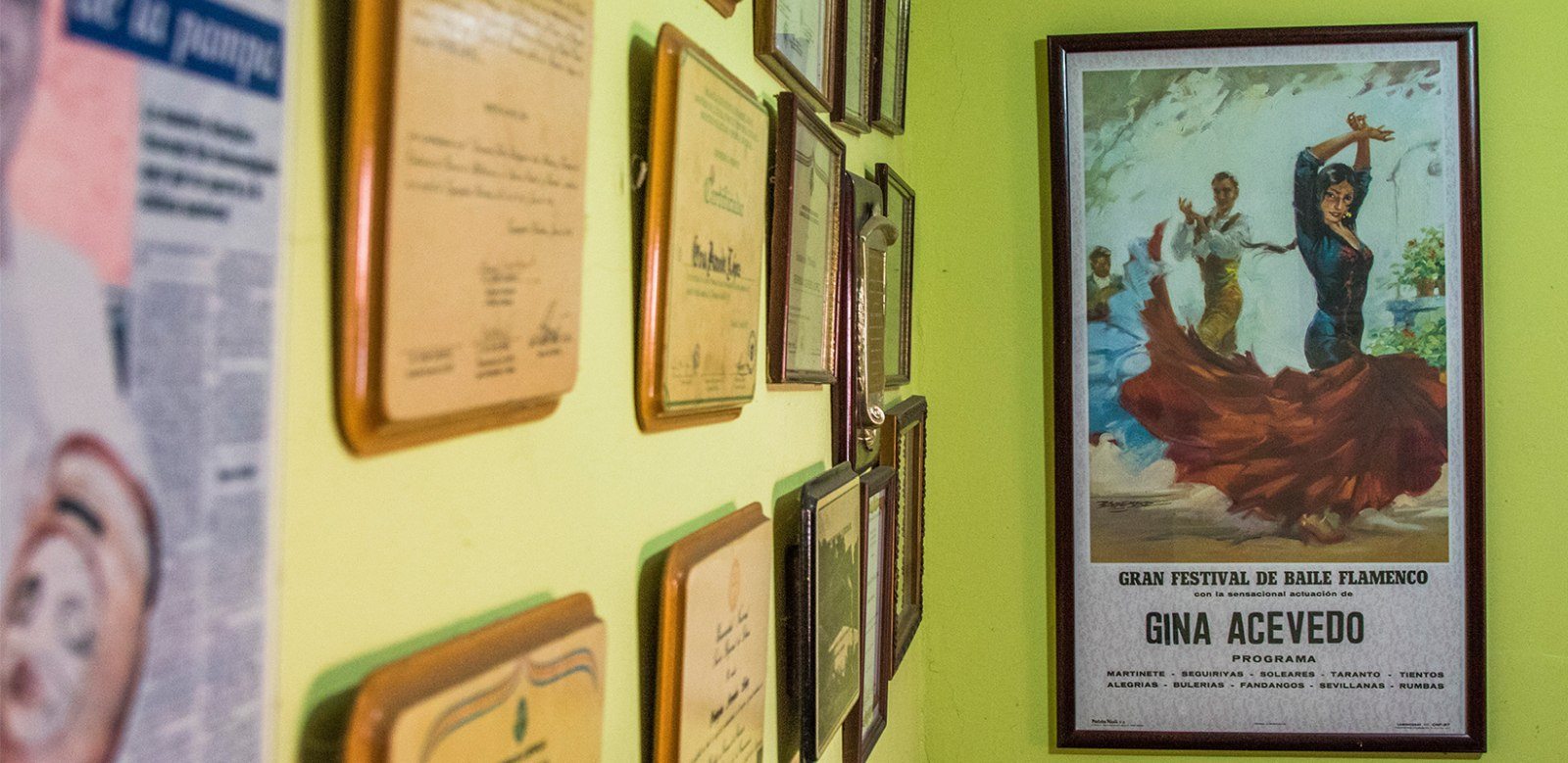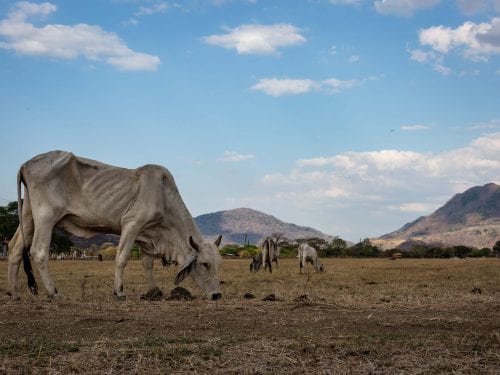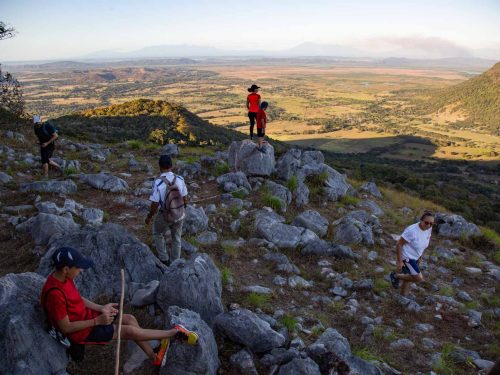
A yoke of oxen is driven by the voice of a single oxherder, who moves slowly but steadily through the dust on the cattle path, with skin tanned by the sun and worn sandals, taking on the arduous task of taking loads of sugar, coffee, ice, corn, wood stumps and the liquor from Cañas to the Bebedero Port, with about 20 padlocks so the load arrives complete.
These are some of the scenes that remain indelible in the memory of sugarcane worker Georgina “Gina” Acevedo Acevedo, who was awarded the National Culture Prize in 2012. For decades, she has built a record of promoting and shaping the identity and rescuing the traditions that make Guanacaste great.
As we speak, I perceive her passion for teaching and the need to pass on knowledge, which is interwoven with the wisdom and warmth of grandmothers.

Preferring to keep a low profile, Gina does not like interviews or recognitions given at large gatherings, and every time that happens, she makes some of her friends from the Cañas Culture Committee go with her.
In fact, to accept our interview, she told us she would only do it in the company of a member of the committee. That was how we arrived at her house, located in the center of Cañas, in the company of engineer Alvaro Mesen Rojas, another distinguished figure from the canton. We started to talk about the times when Bebedero port was one of the province’s main access routes.
The pier was active until 1952, when the boats that did the coastal trade were retired, and since then, those old trade and travel routes fell into disuse.
In 1978, Acevedo and Mesen worked with the Cañas municipal culture committee with the goal to celebrate the 100-year anniversary of the canton. From there, they established the basis for the current Cañas Culture Committee, which was founded in 1981.

From this group, Acevedo has articulated efforts to set up book exhibitions, traditional dance and marimba classes, to recover the work of the canton’s herdsmen, plainsmen and cooks, to organize horse rides and the popular oxherder parade that takes place every year on the second Sunday of March.
“On the committee, we are a team, a family. We have a work plan for the entire year, we present it to the municipality and they approve the budget,” she comments.
The committee’s annual budget has grown and is currently approximately 20 million colones ($37,700), the result of the work of its members.
Caña de Azucar Starts Playing
In 1995, Gina Acevedo saw the birth of the music band Caña de Azucar (Sugarcane), one of her greatest desires or dreams. This folk presentation group has reaped success and worldwide recognition for 20 years, taking Guanacaste customs to Ecuador, Spain, Estonia, Finland, Italy, Mexico, Portugal, Sweden and Venezuela, to name some of the countries they have visited.
The group owes its name to the Ingenio Azucarero de Taboga sugar mill workers in Cañas, who were the first members of the group. However, since it was hard for many of them to rehearse during sugarcane harvest times, enrollment was opened to other members of the community.
Today, Caña de Azucar has members who are up to 50 years old who sing, play marimba, cimarrona (traditional local bands that play horns and drums) and, of course, dance. Acevedo believes that everything she has done in her lifetime is due to her training as a teacher at Normal School, which at the time used the classrooms of the Institute of Guanacaste in Liberia, which was where Guanacastecans continued their studies back in the 50s when she was about 20 years old.
“As a student at Normal School, they inculcated in you the idea that you were an agent of change in society. That is why the seeds of culture need to be planted in young people,” she comments.
Acevedo related that she once had the privilege of meeting Liberian poet Rodolfo “Fito” Salazar, who even gave her a poem entitled El casorio de Enriqueta (Enriqueta’s Hasty Marriage), which she treasures fondly.
As a teacher, she has a background of 33 years of service at Monsignor Luis Leipold School in Cañas.
“Before, people retired after 28 years. But I kept working because I felt very identified with the school, which I considered my second home,” she explains.
At 77, Gina Acevedo is proud to have a 44-year marriage with Alban Vega Wells, with whom she has raised 10 children. Alban says that due to her passion for culture and traditions, it is hard to find Gina at home and that her love for Guanacaste runs in her blood.
“She’s never at home. You have to take a number to talk to her. She is a great person with a great [spirit of] sacrifice. She has a love of the culture. She dies for that and I tell her that she is going to die there doing that,” he comments, smiling.
On one of the walls of their house, a dozen titles and awards are hanging honorable mentions from universities, the Municipality of Cañas and the Chamber of Tourism.
When I ask about why she thinks she was selected for the National Prize for Popular Traditional Culture, she pauses and says, “I accepted it on behalf of the Culture Committee, not in a personal capacity, because it was an effort by everyone. I always tell my colleagues that we should fight against globalization to not be wiped off the map,” and she affirms that she would like to be remembered for the love she feels for Cañas and her beloved Guanacaste and not for prizes or mentions in articles like ours.







Comments